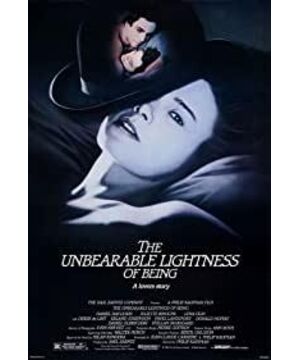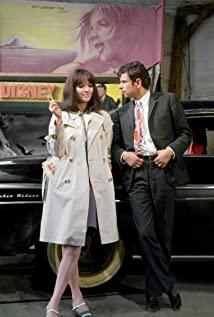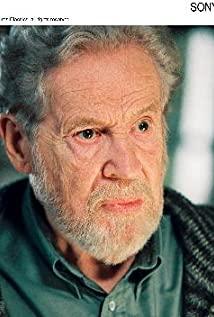First of all, let me spit out, "the unbearable lightness of being" you translated into "Prague Love" for me? I said why the plot is so similar to "The Unbearable Lightness of Life", is it really? However, the film reinforces the playboy side of the male protagonist Thomas, because Daniel Lewis is so hot that it would be a pity not to use it. Juliet Binoche is a bit miserable, obviously at the peak of her appearance, but unfortunately the audience is fascinated by Lewis...
----------Dividing line----------
Back to the topic, I read the original book several years ago, and I didn't understand it at all. If I read it now, I probably still don't understand it. After all, words are more difficult to understand than images, or in other words, it is more difficult to come up with one's own understanding. Milan Kundera raises the question of lightness and weight in the first few chapters of the novel, and presents his own elaboration, but... how is this like reading a philosophy book? ! I can't understand it at all! !
Fortunately, the director of the film was very considerate of me. He first created the image of the male protagonist Thomas Playboy, and then eloquently told the love story of the male and female protagonists. Lisa's mouth said: "Life is too heavy for me, but too light for you, I can't stand the lightness of life, I can't stand this freedom..." So Thomas (representing most men) He believes that life is light, and that the first priority in life is happiness and freedom. Of course, Thomas is the light extreme, and he's so wild that he's a dandy. At the other extreme is Teresa (representing most women), who takes life too seriously and was reluctant to let Thomas go when she first met him, so she went to Switzerland alone to live with Thomas, and asked early When Thomas got married, what she pursued was not freedom, but a destination.
There is a very interesting plot in the film, that is, when the two have a rift in their relationship due to their outlook on life, it is the turbulent situation that prompts the two to reunite. In the context of the war, Thomas began to become "heavy". He refused to bow his head to the Soviet Union's obscenity, and even wrote articles to criticize the enemy. Teresa also began to become "lighter", she slowly accepted her husband's wild nature, became friends with her husband's lover, and even cheated on herself (you cheated and I cheated too?)
So lightness and heaviness are not opposed to each other. If you have to describe it, it is Teresa's words: "Compared to you, I love Karenin (the heroine's dog) more, no, not more, but in a more A good way." Mutual achievement is the best of all relationships.
At the end of the film, in the truck, Teresa asks Thomas, "What are you thinking about?" Thomas replies, "I'm thinking, how happy I am." They don't know the brakes are about to fail, and they don't know they won't survive the next one Turn, but they are happy.
It is not light happiness, nor heavy solidity, but a feeling that is independent of the two and comes from the third dimension.
View more about The Unbearable Lightness of Being reviews











